Top 10 Singapore news stories in 2018
In 2018, politics took centrestage in Singapore. The ruling People’s Action Party is in the process of transitioning to its fourth generation of leaders, with Finance Minister Heng Swee Keat expected to succeed Lee Hsien Loong as prime minister. On 12 June 2018, history was made when US President Donald Trump met North Korean leader Kim Jong Un in Singapore – the first such meeting since the Korean War ended with a ceasefire in 1953.
Legal issues also dominated the headlines. Three Workers’ Party MPs are embroiled in lawsuits with their town councils accusing them of breaching their fiduciary duties and making improper payments. The debate over Section 377A in Singapore intensified following a decision by India’s highest court to strike down a similar decades-old law that criminalised sex between men.
10. 99-year HDB lease
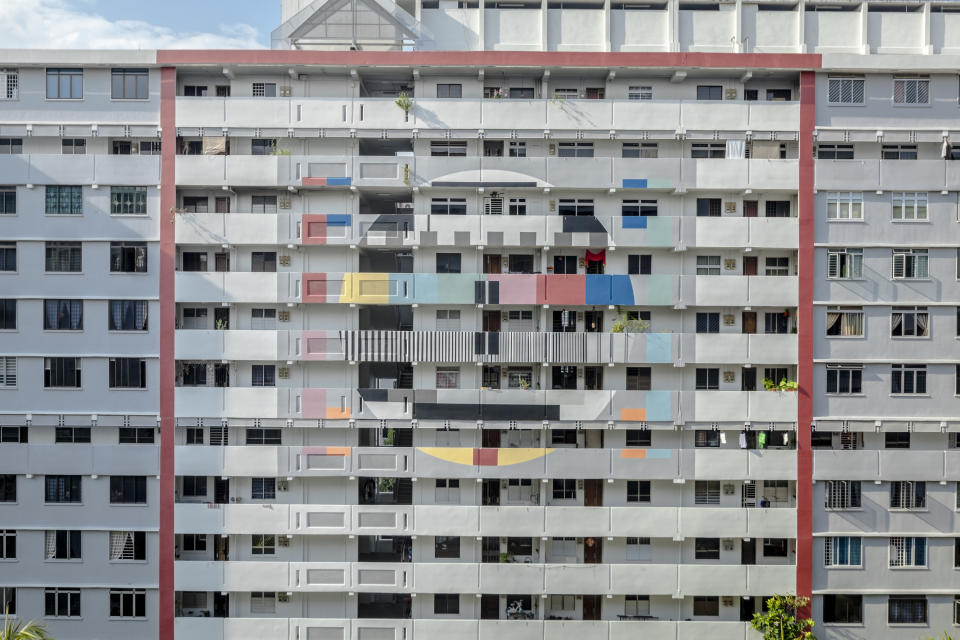
The sensitive topic of 99-year lease for HDB flats was addressed by Prime Minister Lee Hsien Loong at this year’s National Day Rally.
Lee said there is a “fundamental reason” that the lease for HDB flats runs for 99 years, after which homeowners must return their flats to the state: to be fair to future generations. In this way, land can be recycled and future generations can buy their own built-to-order flats. If flats were on freehold, Singapore would soon run out of land to build new flats, Lee pointed out.
Nonetheless, even if home owners were to return their flats to the state at the end of the lease, the government will help them to find another flat to live in, he assured.
9. Social enterprise hawker centres
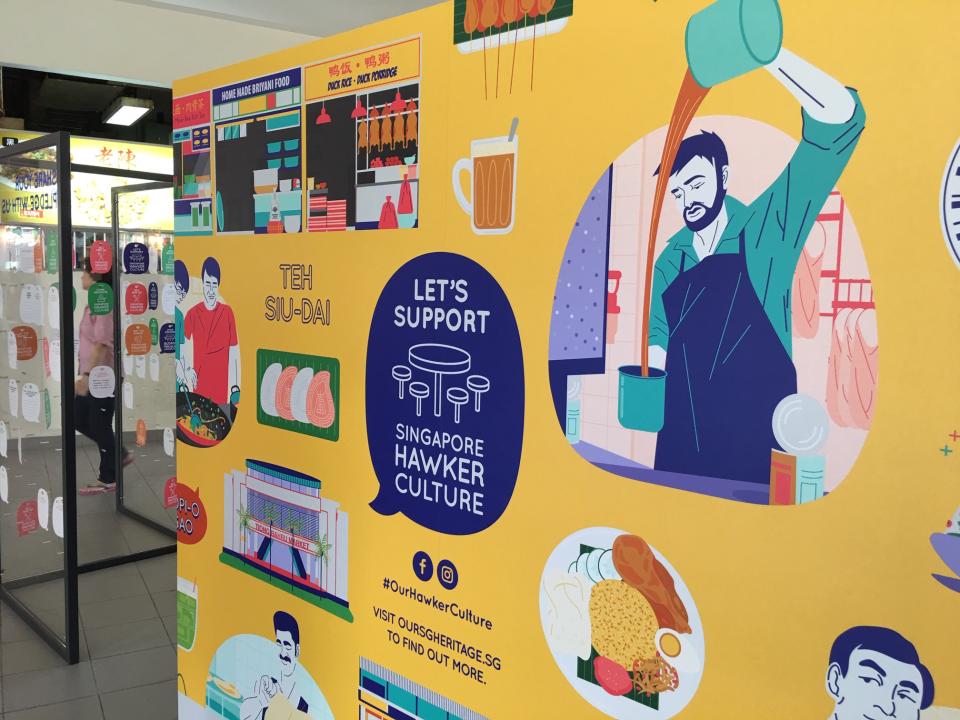
It began with a blog post by noted food critic K F Seetoh, decrying the contractual clauses imposed on hawkers by operators of social enterprise hawker centres (SEHC). Seetoh claimed these clauses were onerous as they inflated the operating costs of hawkers, who were left struggling to cope.
Within months – and several more blog posts later – the issue was discussed in Parliament, with Senior Minister of State for the Environment and Water Resources Dr Amy Khor claiming that stall rentals at hawker centres do not affect food prices. While her comments were widely derided, the National Environment Agency did agree to co-fund centralised dishwashing costs at 7 new SEHCs.
8. Singapore-Malaysia ties

It was a political earthquake that reverberated across the Causeway: on 9 May 2018, the Pakatan Harapan coalition scored a shock win in the Malaysian general election, making Mahathir Mohamad Prime Minister for a second time. And ever since the old warhorse took the reins of power again, several thorny issues between Singapore and Malaysia have surfaced.
From perennial bugbears such as the status of the water agreement to a delay in the implementation of the High Speed Railway (HSR) project, ties between the two countries were at times reminiscent of the 1990s, when Mahathir – in his first spell as PM – took a combative stance towards the Republic.
The most recent issue to crop up: Malaysia expressing its desire to reclaim its airspace over southern Johor from Singapore, and the Singapore government’s assertions that Malaysian government ships have repeatedly encroached into the Republic’s territorial waters.
7. Section 377A of the Penal Code
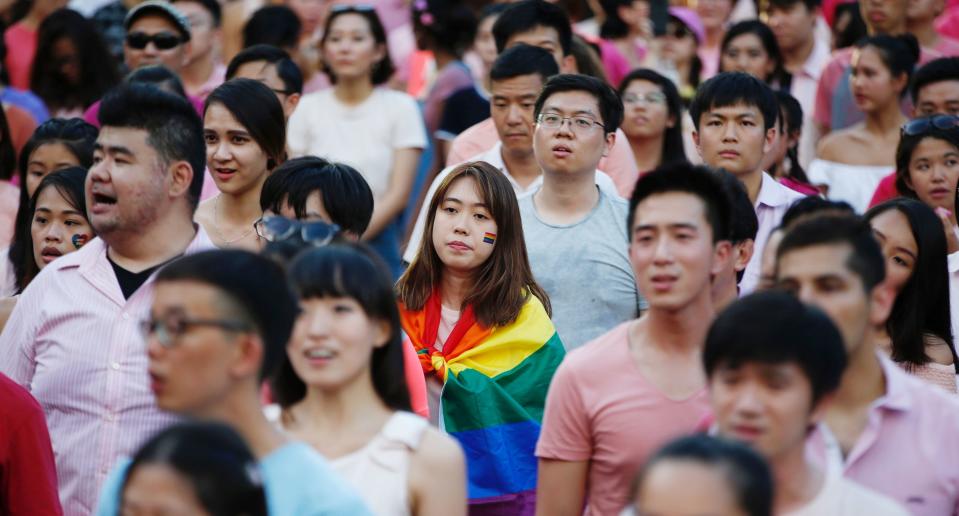
An emotive issue was revived in September when the Indian Supreme Court struck down a decades-old law that criminalises sex between men. Following this, veteran Singapore diplomat Tommy Koh urged a renewed constitutional challenge to repeal Section 377A of the Penal Code.
Petitions have since been started by activists on both sides of the divide, with religious groups urging a maintenance of the status quo, and a deejay filing a fresh legal challenge against 377A. Politicians such as Minister for Law and Home Affairs K. Shanmugam have also weighed in, saying that any decision on 377A is a matter for Parliament to consider.
While Prime Minister Lee Hsien Loong had said in 2004 that authorities would not actively enforce 377A, Attorney-General Lucien Wong said in October that the Public Prosecutor (PP) had “the discretion to institute, conduct or discontinue any proceedings for any offence is vested in the Attorney-General as the PP”.
According to a Blackbox poll commissioned by Yahoo News Singapore, which was conducted from 12-19 October this year, most Singapore residents favour retaining Section 377A without enforcement.
6. Fake news
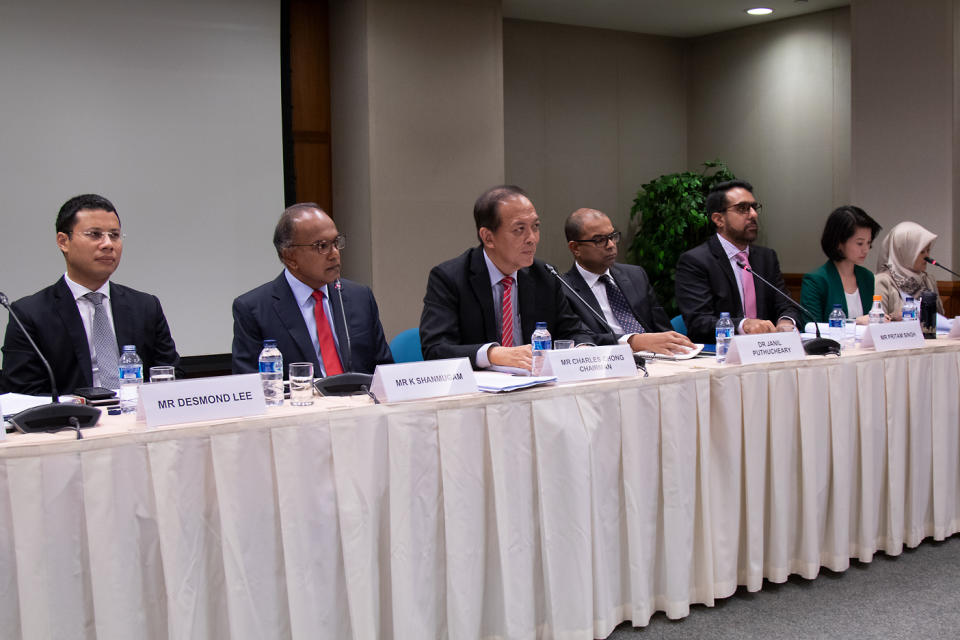
In March 2018, a Select Committee appointed by Parliament heard 170 written representations and 65 oral representations – including a marathon six-hour grilling of historian Thum Ping Tjin – in addition to a seven-week public consultation on deliberate online falsehoods, or fake news.
Less than a year later, the committee has decided that the government should pass laws against fake news. While tech giants Facebook and Google expressed concerns about Singapore’s ‘rush’ to pass anti-fake news laws, Minister of State for Law Edwin Tong echoed the need for legislative powers in Parliament in November.
Coupled with recent moves by authorities against the likes of socio-political blog The Online Citizen and financial blogger Leong Sze Hian, for an alleged fake news story and defamation respectively, there have been concerns that the proposed legislation would target the government’s opponents.
5. SingHealth cyberattack
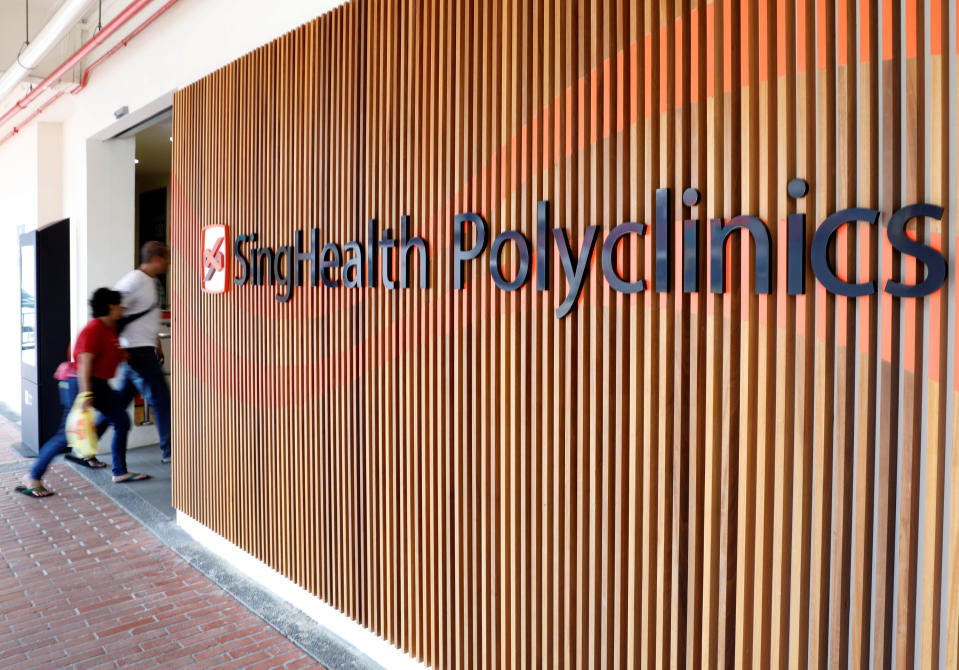
It was the worst ever cyberattack in Singapore’s history, one that reverberated all the way to the Prime Minister. Between 27 June and 4 July, the personal particulars of 1,495,364 unique patients – including that of Prime Minister Lee Hsien Loong – were stolen from SingHealth’s database by an advanced persistent threat (APT) attack.
According to Minister for Communications and Information S. Iswaran, “the attack fits the profile of certain known APT groups”, which are “typically state-linked” and conduct extended cyber campaigns to steal information and disrupt operations. A Committee of Inquiry that was formed to investigate the attack was told that the initial response by authorities to the attack was “piecemeal and inadequate”.
The COI was told of numerous instances of a lack of initiative by middle and top management. For example, a senior database administrator did not immediately recognise that a “serious security incident” was taking place. Leadership issues at the highest level have been thrown up as well.
The COI will submit its findings and recommendations to Iswaran before the end of the year.
4. Leadership succession

In true People’s Action Party (PAP) fashion, Finance Minister Heng Swee Keat’s political coronation was low-key, stage managed and blander than roti toast sans kaya. But it still surprised many: Heng secured the post of the PAP’s first assistant secretary-general instead of Trade and Industry Minister Chan Chun Sing, who was widely seen as the favourite to become Singapore’s next Prime Minister.
Another unexpected development: Heng’s ascension to the role of 1st assistant secretary-general was broken by Chinese-language daily Lianhe Zaobao, citing senior party sources, a full day before it was made official. Does this point to splits in the party, or perhaps assertive party cadres who are not afraid to go against the leadership? If so, how will Heng, supposedly a consultative figure, bring the various factions together?
There is also the matter of Heng’s health: in 2016, he suffered a debilitating stroke. And while residents in his Tampines GRC ward praised Heng’s appointment, the 57-year-old sought to reassure Singaporeans that he has made a full recovery from his stroke.
3. AHTC
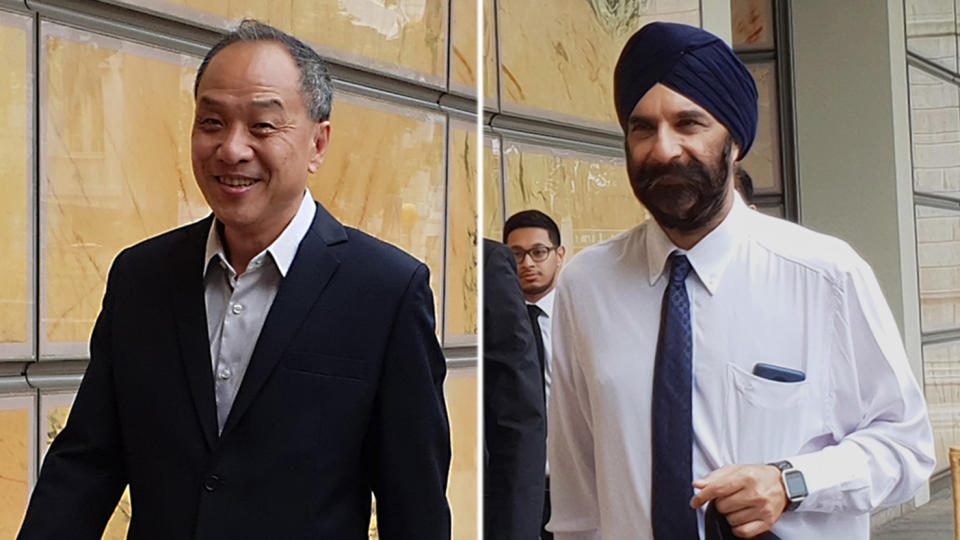
One of the most highly anticipated court hearings in years began in October when three senior Workers’ Party (WP) MPs and other defendants faced off against the Aljunied-Hougang Town Council (AHTC) and the Pasir Ris-Punggol Town Council (PRPTC).
Former WP leader Low Thia Khiang, current chairman Sylvia Lim and chief Pritam Singh have been accused in the lawsuits initiated by AHTC and PRPTC of breaching their fiduciary duties and making improper payments to their then managing agent between 15 July 2011 and 14 July 2015. The verdict of the hearing is expected to be known next year.
Due to the mounting legal costs from the lawsuits, the three MPs made a public appeal for financial help in late October. Within just three days of their appeal, the MPs managed to raise more than $1 million and thanked “the incredible outpouring of support from the public”.
2. National Service issues
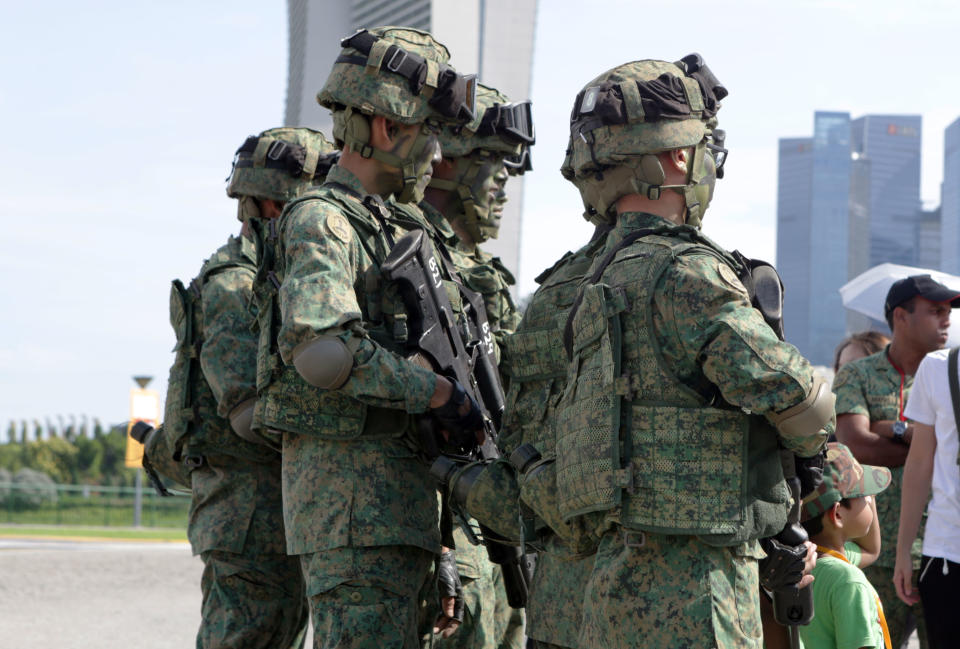
National Service-related matters came to the fore in 2018, from perennial training safety issues to NS liabilities for aspiring sportsmen and those with dual citizenship. Two full-time National Servicemen, Dave Lee and Liu Kai, died following training incidents. A Committee of Inquiry has found breaches of training safety and discipline rules in the case of the former, while investigations are underway in the latter.
Meanwhile, aspiring footballer Ben Davis and Thai national Ekawit Tangtrakarn found themselves in a bind due to their NS obligations.
Davis, the first Singaporean to be signed by an English Premier League club, had his deferment request rejected. In response to his father Harvey’s claim that Ben might reconsider representing Singapore, Defence Minister Ng Eng Hen accused him of having “no commitment to serve Singapore or our national interests”.
Tangtrakarn, who was a Singapore citizen until he was 22, was born and raised in Bangkok. He was found guilty for violations under the Enlistment Act and eventually fined $6,000.
The two cases sparked a debate about NS obligations and calls for Mindef to make its policy on such matters clearer.
1. Trump-Kim summit
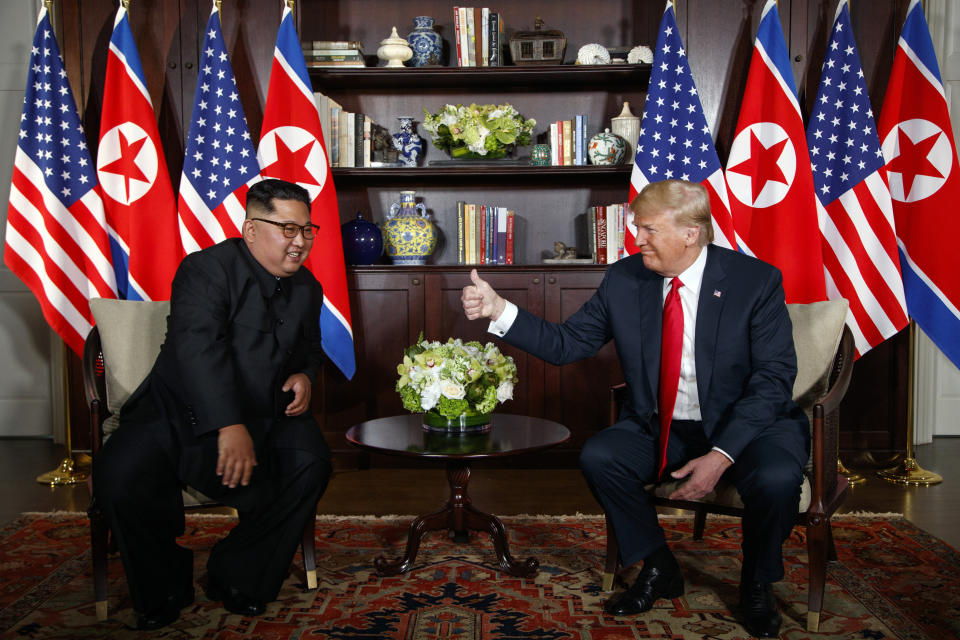
History was made on 12 June 2018, when United States president Donald Trump met with North Korean leader Kim Jong-un at their historic summit in Singapore. Hosted by the Republic at a cost of $20 million, it attracted scores of journalists – some 2,500 – from around the world. So it was little wonder that the Singapore government rolled out the red carpet at the International Media Centre, with a food menu featuring 45 dishes across 15 cuisines.
The event also saw at least nine South Koreans involved in separate protests here, with five arrested. There was also a minor fracas on Sentosa between foreign journalists and Ministry of Communications and Information officials, who were perhaps unused to more assertive foreign media. The event has even inspired a widely-criticised dress for Singapore’s representative at the Miss Universe contest.



